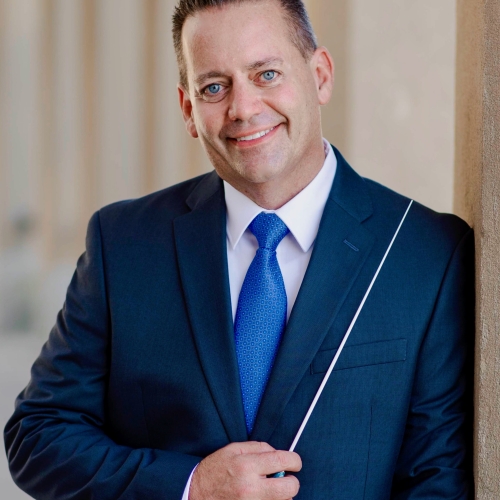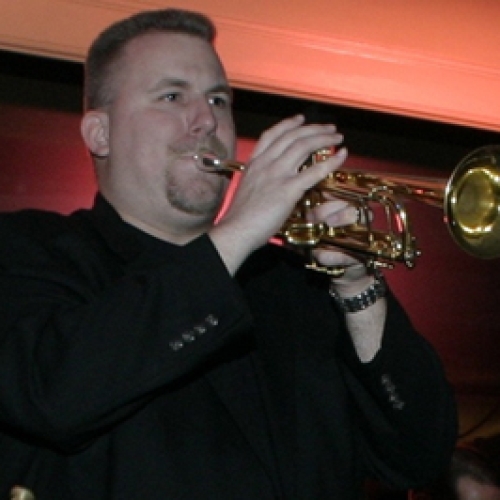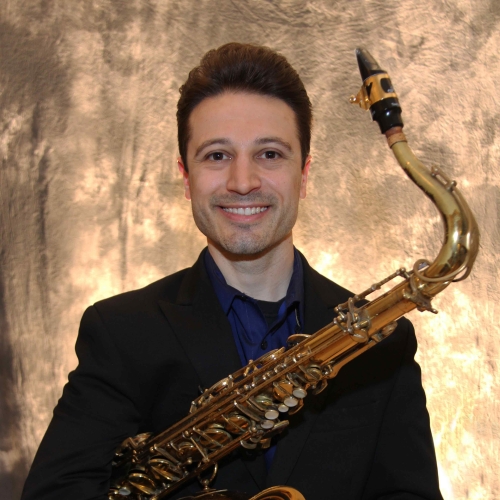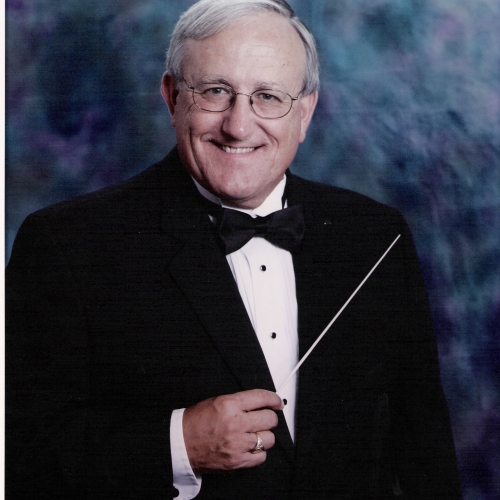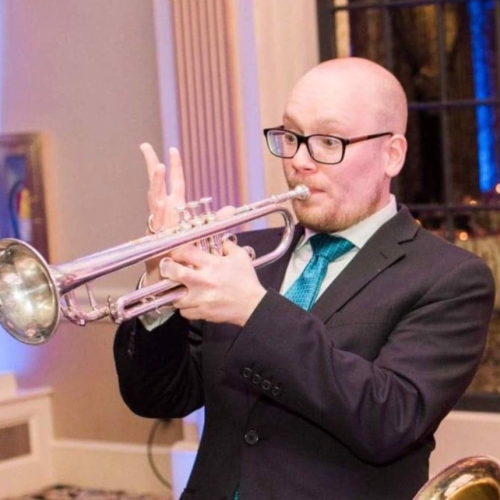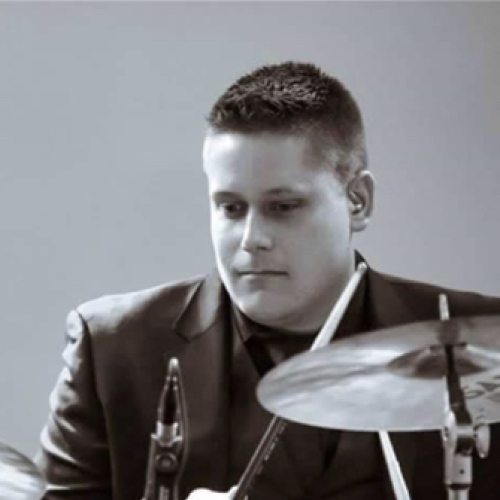
Music Education (MAT)
The Master of Arts in Teaching – Music Education (MAT) is an advanced teacher certification program for practicing musicians desiring a master’s degree and certification to teach music in K-12 schools as well as in other educational settings and related careers. The program provides the opportunity for those who are passionate about both music and education to develop and refine the intellectual, pedagogical, teaching and musical skills necessary for advancement. MAT graduates are eligible to receive K-12 certification from the Commonwealth of Pennsylvania Department of Education to teach music.
Overview
There is a decisive moment in the life of every musician — a moment where the music, the practice and the art coalesce and the decision is made to commit a lifetime to making music. There are some musicians who choose to share their passion with others — to stand in front of a classroom, a stage or an ensemble and help young people discover their own path through music. Jenny Neff, Program Director for the MAT in Music Education, uses the term "musician-educator" to describe those musicians who have decided to share their talents in the field of education.
Community Engagement & Social Impact
Students in the MAT program engage in coursework that addresses teaching at multiple grade levels and areas of music to prepare for various settings of music education. The curriculum aligns with the intellectual, pedagogical, teaching, and musical skills students will need to receive K-12 certification and be successful educators.
Coursework reflects best practices in teaching, as well as current educational trends in K-12 music classrooms. Students have opportunities to implement theory into practice through hands-on teaching in classrooms in both urban and suburban settings. Many of the pedagogy courses meet in local schools, where students teach lessons and lead rehearsals in active and engaging musical settings, all under faculty oversight. Students complete courses at elementary and secondary levels in a cohort model. The program design includes seven weeks of coursework followed by seven weeks of student teaching at the elementary or secondary level. The following semester follows the same model for the other level.
Students are supported by faculty throughout the program, and also receive support and guidances from career services through the job searching process.
Two Pathways
Pathway 1
Students who attend UArts for their undergraduate degree can declare a minor in Music Education and take the required coursework. The Music Education minor complements the degree studies of all music majors. Three courses in the Music Education minor also count as liberal arts electives for undergraduate students. Coursework includes instruction in each of the instrument families, pedagogy of private instruction and improvisation, conducting, rehearsing jazz ensembles, the psychology of teaching and learning music, and the needs of neurodiverse learners. Field experiences include working with ensembles in public and private schools.
UArts music education minors will be able to complete the Master of Arts in Teaching degree (MAT) and receive teacher certification in one additional academic year. This “4+1” option allows students to earn a music education minor, bachelor’s degree, master’s degree, and teacher certification in five years. Coursework is based on current Pennsylvania Department of Education teacher certification requirements. This program may be revised as needed to accommodate new state requirements.
Pathway 2
Students who have graduated from other institutions as music majors can also apply for the UArts MAT in Music Education program. Before taking the core MAT courses, students might need to complete prerequisites for the program. These courses align with UArts’ undergraduate Music Education minor requirements. Upon review by the director of Music Education, some prerequisites might be waived after reviewing an applicant’s transcript. Additionally, to meet prerequisite coursework requirements a maximum of six credits can be considered for transfer. Typically, students entering from other institutions are able to take their co-requisite courses in one semester, followed by the core MAT courses over two semesters, for a total of three semesters. Co-requisite coursework review includes instruction in each of the instrument families, pedagogy of private instruction and improvisation, conducting, rehearsing jazz ensembles, the psychology of teaching and learning music, and the needs of neurodiverse learners. Field experiences include working with ensembles in public and private schools.
Faculty
Faculty of the program include widely celebrated musicians and educators, with extensive classroom experience in public schools and performance settings.
Additionally, our music education faculty connect to educators in the field to bring diverse guest speakers and content experts to students in the MAT program.
Current faculty include Dr. Jenny Neff (Program Director), Keith Hodgson (Coordinator of Student Teaching Placements), Matt Gallagher, Michelle Przybylowski, Jeffrey Kern, Michael Fein, Kevin Hanson, Ross Bellenoit, Chris Argerakis, Dr. Debbie Wolf and John Lindner. Through wide networks within the music and education fields, our faculty help provide playing and teaching opportunities for students throughout their tenure at UArts and beyond.
Contact Music Education Program Director Jenny Neff at jeneff@uarts.edu.
About the Curriculum
Sample Curriculum
The Master of Arts in Teaching in Music Education program provides the opportunity for those passionate about both music and education to develop and refine the intellectual, pedagogical, teaching and musical skills necessary for advancement. Candidates are required to have completed undergraduate studies in applied music, composition, theory, musicology or performance to meet the demands of the program.
Coursework includes comprehensive instruction in the use of music education technology, field-based learning experiences and site-based pedagogy courses providing direct feedback on instructional effectiveness as well as a comprehensive student teaching component. The program readies students for careers teaching music in a K–12 setting and prepares students for passing all required Praxis exams in order to become certified teachers in the state of Pennsylvania.
Total Credits: 36
Duration: 1 year full-time, pending all co-requisites are met
Music Pedagogy III: Pre-K–Grade 4 (3 credits)
Music Pedagogy IV: Grades 5–8 (2 credits)
Alternative Ensembles (2 credits)
Student Teaching: Elementary (4 credits)
Student Teaching Seminar: Elementary (1 credit)
Historical and Philosophical Foundations of Music Education (3 credits)
Curriculum and Assessment (3 credits)
Music Pedagogy V: Grades 9–12 (2 credits)
Music Pedagogy VI: Vocal/Choral (2 credits)
Conducting and Rehearsal Tech: HS and Comm. (3 credits)
Student Teaching: Secondary (4 credits)
Student Teaching Seminar: Secondary (1 credit)
Sociological Foundations of Music Education (3 credits)
Integration of Technology in Music Education (3 credits)
Explore the Full Curriculum
Tuition
$54,010 tuition for the year and a $280 student services fee. This includes 18 credits for each semester. Applications are reviewed and scholarship money is applied to this amount. Students needing an additional semester to complete co-requisites pay 50% of the full tuition cost for that semester.
Alumni & Careers
How to Apply
Who Should Apply
Qualified MAT in Music Education applicants must demonstrate the following experiences, coursework and competencies. Co-requisites may be satisfied through completion of the Music Education minor at UArts, completion of appropriate courses at another institution, documented professional experience or individual examination.
-
Successful completion (cumulative GPA of 3.0 or higher) of an undergraduate degree in musical performance, composition, theory, history/literature or related field from an accredited college or university.
-
Successful completion of co-requisite coursework and/or acquired competencies in:
-
Introductory course in educational psychology
-
Course in child growth development
-
Knowledge of current issues, trends and methods in music teaching and lesson planning
-
Field experience involving observation, teaching and lesson planning
-
Functional skills on piano
-
Course in basic conducting and score reading
-
Course in orchestration/arranging
-
Application Deadline
Spring 2024 priority deadline: Applications received by Oct. 15 will be among the first considered for admission and scholarship. We will not accept any applications or materials after Jan. 9.
Fall 2024 priority deadline: Applications received by Feb. 15 will be among the first considered for admission and scholarship. We will not accept any applications or materials after August 12.
Review graduate tuition, financial aid and scholarship information.
Application Requirements
-
$60 nonrefundable application fee
-
If the cost of the application fee is a barrier, contact Admissions to request a fee waiver code.
-
-
Official undergraduate transcript
-
Official transcripts must be sent directly from the college where you have earned, or will earn, your undergraduate degree by mail, email or a secure electronic document-delivery service. Applicants who are enrolled at University of the Arts will have their transcripts added to their application by the admissions office.
-
If you have earned, or will earn, your undergraduate degree outside the U.S., see our transcript requirements for international graduate applicants below.
-
-
Two letters of recommendation
-
Two letters of recommendation from professors or professionals in your field, who are familiar with your capabilities, are required. In the case that these recommenders are not available, you may request letters from colleagues, collaborators or peers, if necessary.
-
Applicants must enter contact information for their recommenders on the application. An email will be sent to recommenders providing a link for them to upload their letter. Letters of recommendation may also be submitted by the recommender via email to gradcredentials@uarts.edu.
-
-
Statement of intent
-
Statements should be one to two pages and detail your professional plans, interests and goals. What do you hope to gain by your studies at the graduate level?
-
Your statement of intent may be uploaded during the application process or added after submission via your applicant status portal.
-
-
Résumé
-
Your résumé should highlight all your professional experiences, including employment, internships, honors, performances and publications or projects.
-
Your résumé may be uploaded during the application process or added after submission via your applicant status portal.
-
-
Interview
-
After the application has been processed, each applicant is contacted to schedule an interview with the program director. Interviews may be conducted on campus or by Zoom.
-
International Applicants
University of the Arts’ Master of Arts in Teaching (M.A.T.) in both Visual Arts and Music Education programs prepare students for Pennsylvania’s Instructional I Certificate to teach PK-12 in the designated subject area. According to the Pennsylvania Department of Education, when applying for certification, the candidate must: be a citizen of the U.S.; or hold a permanent resident immigrant visa that allows you to live and work in the U.S.; and file a Declaration of Intent to Become a Citizen of the United States form. Please see the PDE’s Foreign-Educated Teacher Certification Applicants page for more information about citizenship and certification.
In addition to the requirements listed above, international applicants or those with foreign credentials must submit
-
Official undergraduate transcripts
-
Applicants who have academic documents from institutions outside the U.S. are required to provide original, attested or certified true copies of academic records from the institution where they have earned, or will earn, their undergraduate degree. These records should be in the original language in which they were issued.
-
For postsecondary school records that are not in English, applicants must also submit an official translation of all their academic documents. Translations must be a complete, literal, word-for-word translation in the same format of the original academic document. Transcripts cannot be translated by the student or any members of their family. Acceptable translators include English teachers or other school officials, professional translators, or a local EducationUSA office.
-
Admissions might request that students obtain a course-by-course credential evaluation if we are not able to confirm the equivalent level to a U.S. undergraduate degree.
-
-
Proof of English proficiency
-
For international applicants whose primary language is not English, and who have not completed two semesters of college-level English in a college/university where the language of instruction is English, proof of English proficiency is required.
-
Recommended minimums for English proficiency exams are as follows.
-
Applicants who meet the academic and creative requirements for admission but whose scores do not meet the English proficiency requirement for degree study might receive an offer of conditional admission that requires enrollment in the university’s English as a Second Language Institute (ESLI). Applicants who successfully complete ESLI will then be able to begin their degree program studies in the fall semester.
-
In special circumstances, applicants who do not have access to the TOEFL, IELTS or Duolingo English tests can request a waiver of this requirement. The request should be submitted by email to admissions@uarts.edu. Requests will then be reviewed on a case-by-case basis and might require an interview.
-
-
I-20/F-1 international student visa information: Upon acceptance, students will be contacted by University of the Arts’ International Student Programs office, regarding visa counseling and all materials required to create an I-20 in order to obtain an F-1 visa. Contact Mara Flamm, director of international student programs, with any questions regarding your I-20 or F-1 visa.
FAQ
Frequently asked questions about the Music Education MM program.
The MAT in Music Education prepares students to earn a master's degree in music education and to apply for K-12 music teaching certification in PA. Our Coordinator of Student Teaching also works with students to apply for teaching certification in other states as needed.
Current alumni are working in the field as full-time and part-time teaching positions (public schools, private schools, early childhood teaching programs, and neighborhood music schools), private studio teaching, music/arts administration, performing professionally, and even a placement and casting coordinator for Walt Disney Parks & Resorts.
The entire MAT in Music Education program can be completed in 2 or 3 semesters.
You do not need a master's degree to become a music teacher, but the MAT program allows you to earn a master's degree and teacher certification in one program. Teachers who have a master's degree typically earn more on a teacher pay scale.
No. The MAT is music education is an in-person degree program.
An MA is a Master of Art. And MAT is a Master of Arts in Teaching. An MEd is a Master of Education. The MAT program in music education is for those who would like to apply for teaching certification.
The MAT in Music Education requires an undergraduate degree in music. Many of our students come from backgrounds in music performance, composition, and/or the music industry.
Music education matters in schools because it offers numerous benefits to students. It fosters creativity, self-expression, teamwork and discipline and enhances cognitive skills, including language development, spatial-temporal skills and problem-solving abilities. Music education also contributes to students’ emotional well-being and provides a well-rounded education.
There are no online options for earning a Music Education MM at UArts.
Get Started

Start your application
Begin your application today. Our admissions team will help you throughout the process.

See UArts for yourself
The best way to get to know UArts is by visiting our campus in person. Come see a show, visit a gallery, and get to know the neighborhood.
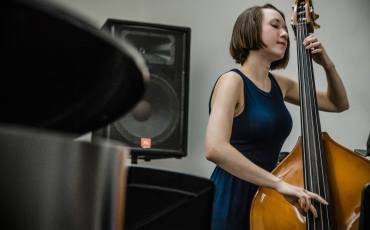
Not sure where to start?
We're glad you want to learn more. Our admissions team is happy to send additional information about our school.







